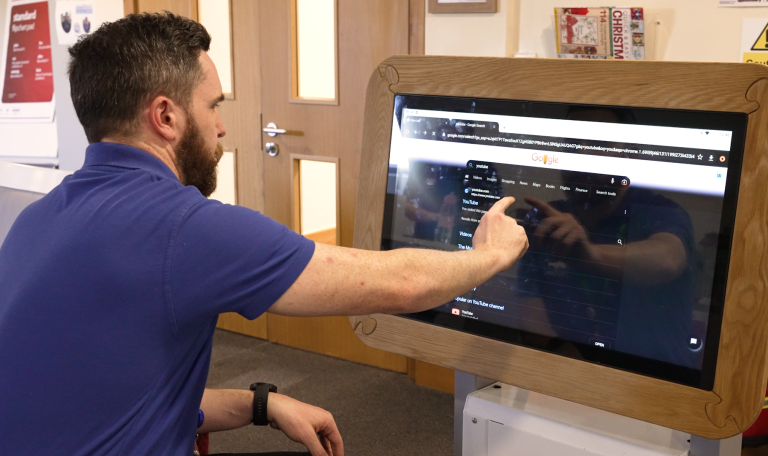Continuing the digital transformation of adult social care

Many of you will have spotted last week’s announcement by the government outlining a series of reforms, including an independent commission, to transform adult social care in England.
The announcement also outlined further commitments to the digitisation of the sector by enabling better sharing of information between health and care and supporting the use of innovative technologies to support care.
Sharing information for safer, efficient and more person-centred care
Over 70% of care providers have now adopted digital social care record (DSCRs) solutions in favour of paper-based approaches to care planning. Connecting these care records together through a shared platform will allow up-to-date medical information to be shared between the NHS and care staff. This could include info on when someone last took their medication, or whether there’s been a change to a care regimen. Using these digital approaches to improve the way information is shared and accessed will help ensure people receive the best possible care. And it means care workers and healthcare staff will have the most up to date information at their fingertips.
In parallel, NHS data will be shared with social care providers to support them in delivering more efficient and safer care for people. Initially this will be through GP Connect, which provides a restricted view of a person’s medical record to social care staff for direct care purposes (where there is consent for the data to be shared). Currently over 2,000 care providers use GP connect to access health data via their DSCR and the government has committed to ensuring that all providers will have access to GP connect through their DSCR over the coming years.
Harnessing the potential of care technologies to transform lives
We know that over 1.7 million people already use assistive technologies to support their care. In the last few years many new technologies have become available – from smart home devices through to specialist technologies such as sensor-based falls prevention technology. It can be a minefield for people, as well as care providers, to understand which of the myriad of technology options available to them are safe and secure .
We will address this by developing a minimum set of standards for care technologies which will help people and providers be confident in the products they are purchasing.
At the same time we’ll build on our existing work to develop social care data standards so that care technologies can properly share information with the NHS where relevant. All with the aim of giving staff access to the information they need to provide the most appropriate, safe and person-centred care.
Over the next few weeks we will be sharing updates on our plans to deliver on these commitments, working as always in partnership with the sector to support the digital transformation of adult social care.